6 Minutes or Less: Einstein & Investment Risk
This newsletter-only feature will be available only to paid subscribers: I ask a thought leader or expert to educate/enlighten/explain an issue via audio in 6 Minutes or Less.
Issue: Einstein said that the most powerful force in the universe is compound returns.
Question: Was Einstein right? And if we’re told to diversify our holdings to manage risk, why does a cross-sectional diversification investment strategy fail during a shock?
Guest: Nobel Laureate in Economics Myron Scholes is the Frank E. Buck Professor of Finance, Emeritus, at the Stanford Graduate School of Business and co-originator of the Black-Scholes options pricing model.
Sharing is Caring: Like the newsletter? Share it with a friend.
The World
Layoffs in the U.S. fell in April, but remained the second highest on record, while job openings dropped according to the Labor Dept., suggesting the labor market could take years to recover despite May’s surprise employment rebound. Meanwhile, the U.S. budget gap more than doubled in May, pushing the deficit for the fiscal year to near $2 trillion as the recession became official, and the longest U.S. economic expansion dating back to 1854 ended. (Reuters, Wall Street Journal, Finance 202)
74% of Americans support the nationwide protests, and 69% say police forces have not done enough to ensure that blacks are treated equally to whites. The finding marks a significant shift when compared with the 2014 reactions to police killings of unarmed black men in Ferguson, Mo., and New York. (Washington Post-Schar School poll)
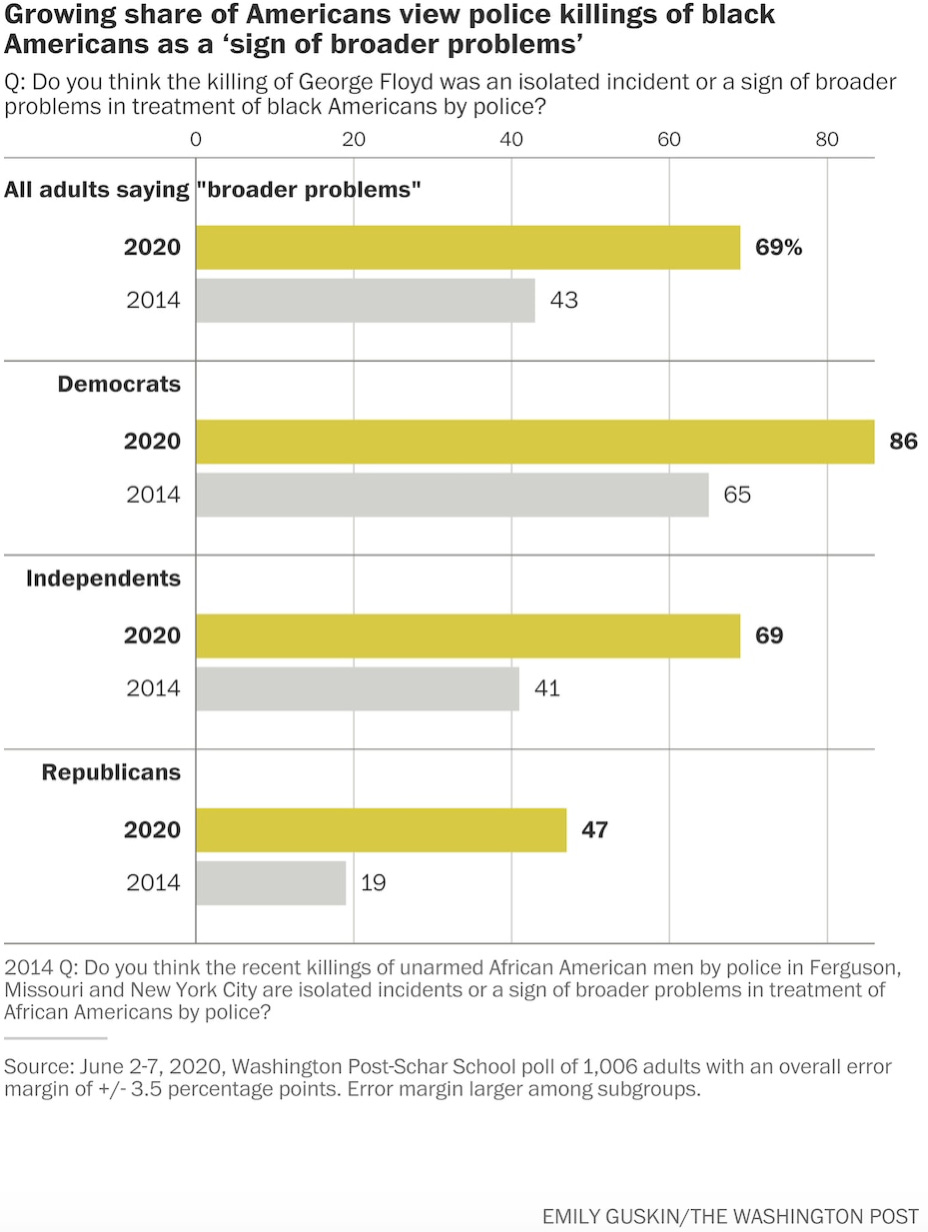
Thousands of protesters rallied in Hong Kong, facing off with police who had banned recent demonstrations to mark the one-year anniversary of a million-person rally that thrust the city into its biggest turmoil in decades. (Wall Street Journal)
Investment agreement, 5G and Hong Kong are among the sensitive topics ahead of Wednesday’s EU-China dialogue, as Beijing pivots to Europe and President Xi calls top European leaders far more regularly. Meanwhile, China leap-frogged Russia to become the world’s second largest arms exporter. (South China Morning Post, The Times)
President Trump’s decision to cut U.S. troop levels in Germany blindsided a number of senior national security officials, and the Pentagon had yet to receive a formal order to carry it out. (Reuters)
The U.S. retook its position as the globe's top renewable energy market in an EY report. (Consulting.US)
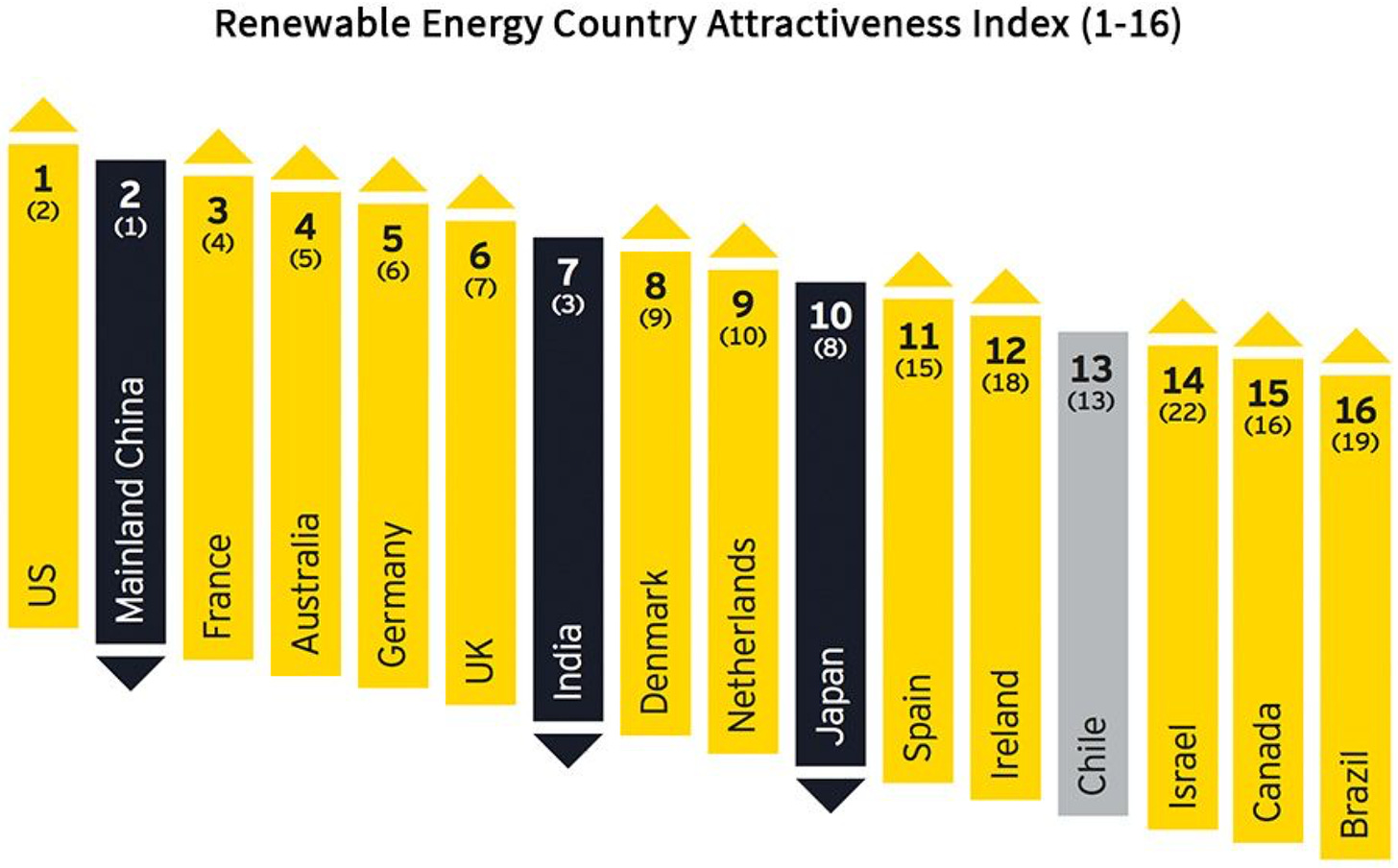
Since the start of June, 14 states and Puerto Rico — locations previously not hot spots — recorded their highest-ever seven-day average of new coronavirus cases. Meanwhile, fewer than half the states are following federal recommendations to report probable cases and deaths (Washington Post, Washington Post)
More than half of U.S. school districts have buildings in need of major repairs, and 41% of districts have problems with their HVAC systems, according to a new GAO report. (EducationDive)
Economy
The recession is generating winners and losers in corporate America, with cash-rich behemoths set to grow while debt-heavy companies and the economy lag. Meanwhile, some 25,000 U.S. stores could close permanently — most mall-based retailers, led by department and clothing stores. (Bloomberg, Bloomberg)
92% of private equity professionals globally believe distressed fund activity will increase in the wake of the coronavirus pandemic. PE managers viewed distressed funds as the biggest near-term fundraising opportunity, with 83% indicating more investor demand for strategies targeting distressed assets. (Institutional Investor)
Hong Kong-based hedge funds are considering uprooting their operations as China prepares to impose national security legislation and the industry worries it could find itself in Beijing’s crosshairs. (Financial Times)
Fitch anticipates annual enrollment declines could range from 5% to 20% for many universities this fall. Private colleges could experience more meaningful financial effects than public colleges, given a higher reliance on tuition and student fee revenues. (Fitch Ratings)
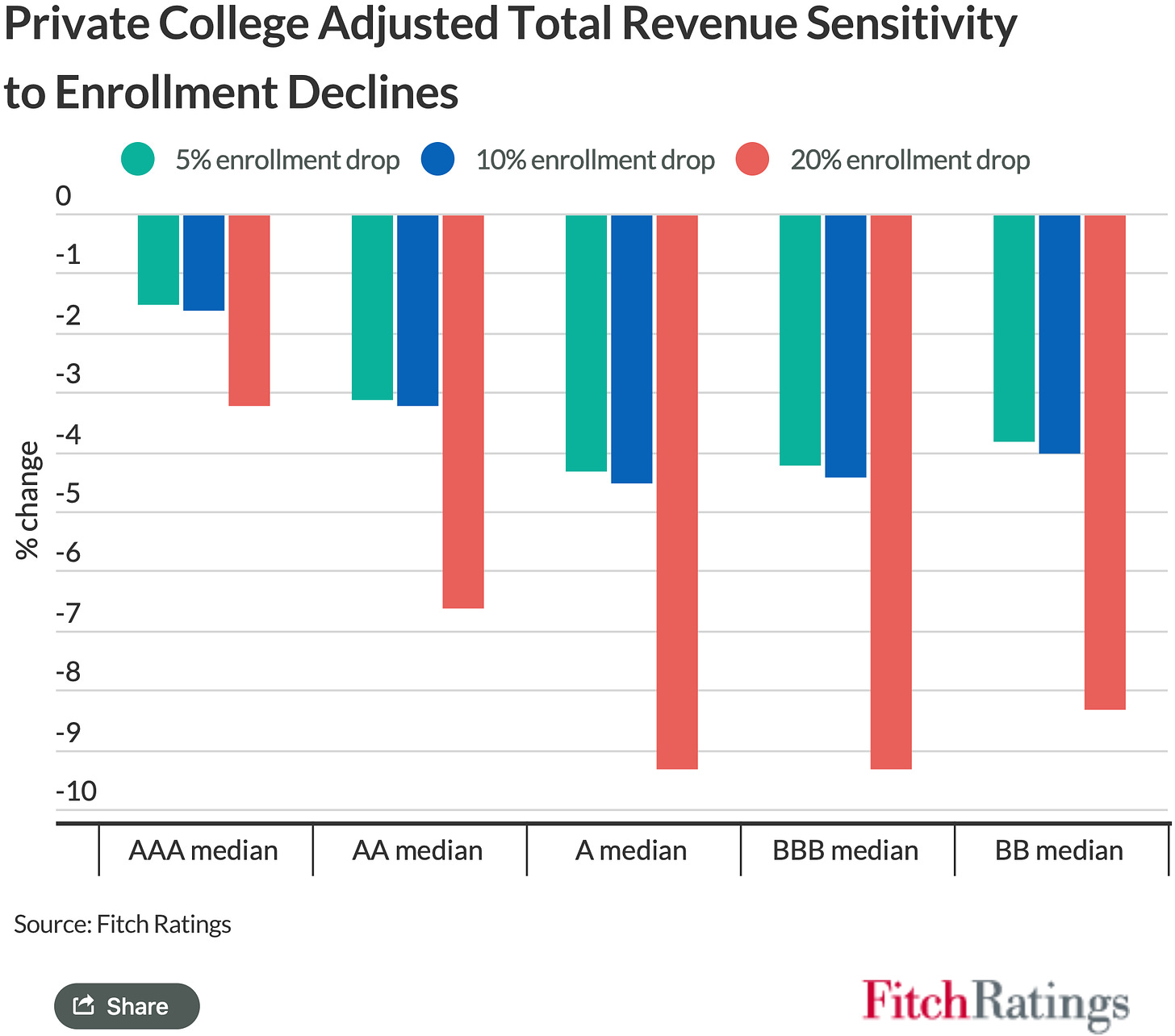
Technology
IBM told Congress it will no longer offer, develop, or research facial recognition technology, while Apple will announce a shift to its own main processors in Mac computers, replacing chips from Intel. (The Verge, Bloomberg)
Pinterest is working to keep revenue flowing as it has received an increasing number of requests for payment extensions from struggling advertisers. (Wall Street Journal)
A hackers-for-hire group targeted thousands of individuals and hundreds of institutions globally, including advocacy groups, journalists, elected officials, lawyers, hedge funds and companies. Meanwhile, the U.S. Homeland Security’s cybersecurity unit warns Windows 10 users to patch their systems, after exploit code for a “wormable” bug was published online. (Financial Times, TechCrunch)
An extensive report explores social media content moderation and concludes that major companies have marginalized the people who do this work, outsourcing the vast majority of it to third-party vendors. (NYU Stern)
Smart Links
10 commitments companies must make to advance racial justice. (Harvard Business Review)
Cities use sewer systems as COVID-19 early warning signs. (The Verge)
The biggest psychological experiment in history is running now. (Scientific American)
Russia’s birth rate fell for 4th straight year. (Wall Street Journal)
Saturn’s moon Titan is migrating away 100 times faster than predicted. (Cal Tech)
Drug researcher develops 'fat burning' molecule. (Science Daily)
Twitter is nerve center of the American news cycle. (Axios)
Good News
In the “Pitch Your Thesis” contest, Harvard seniors distilled their weighty papers into three-minute riffs. Kelsey Ichikawa ’20, a neurobiology and philosophy concentrator, was one of the winners for a presentation on “The Reward of Others’ Pain: Imaging the Brain, and the Ethics of Schadenfreude.” (Harvard Gazette)
Which apps leave people feeling happy? (Center for Humane Technology)
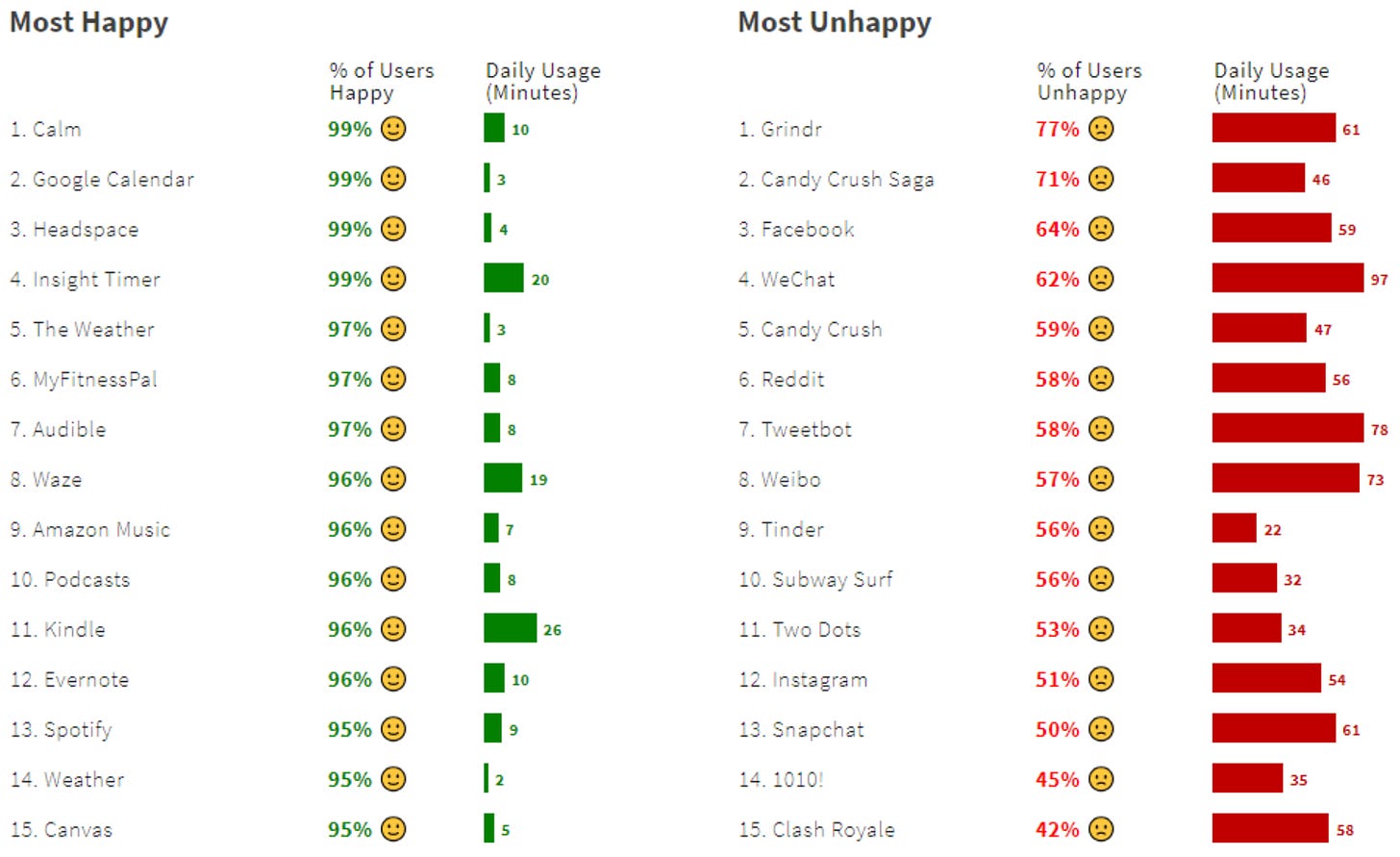
Did you like the newsletter? Why not subscribe now? During this trial period, you get 50% off the regular cost. Continued thanks to everyone who already has done so!





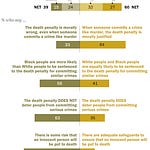


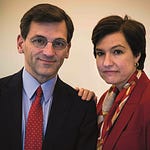
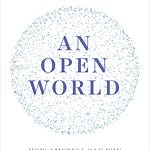
Blindsided